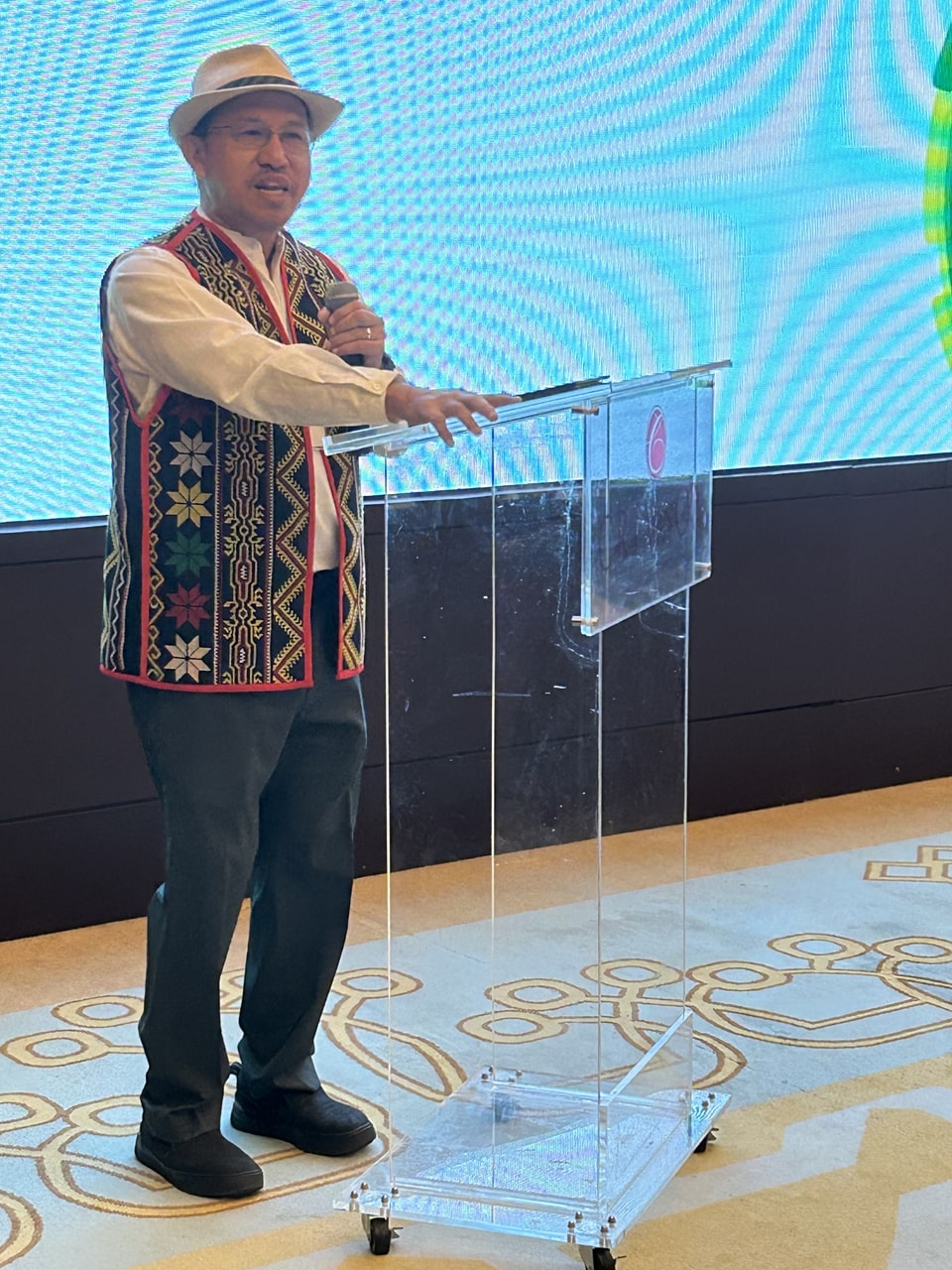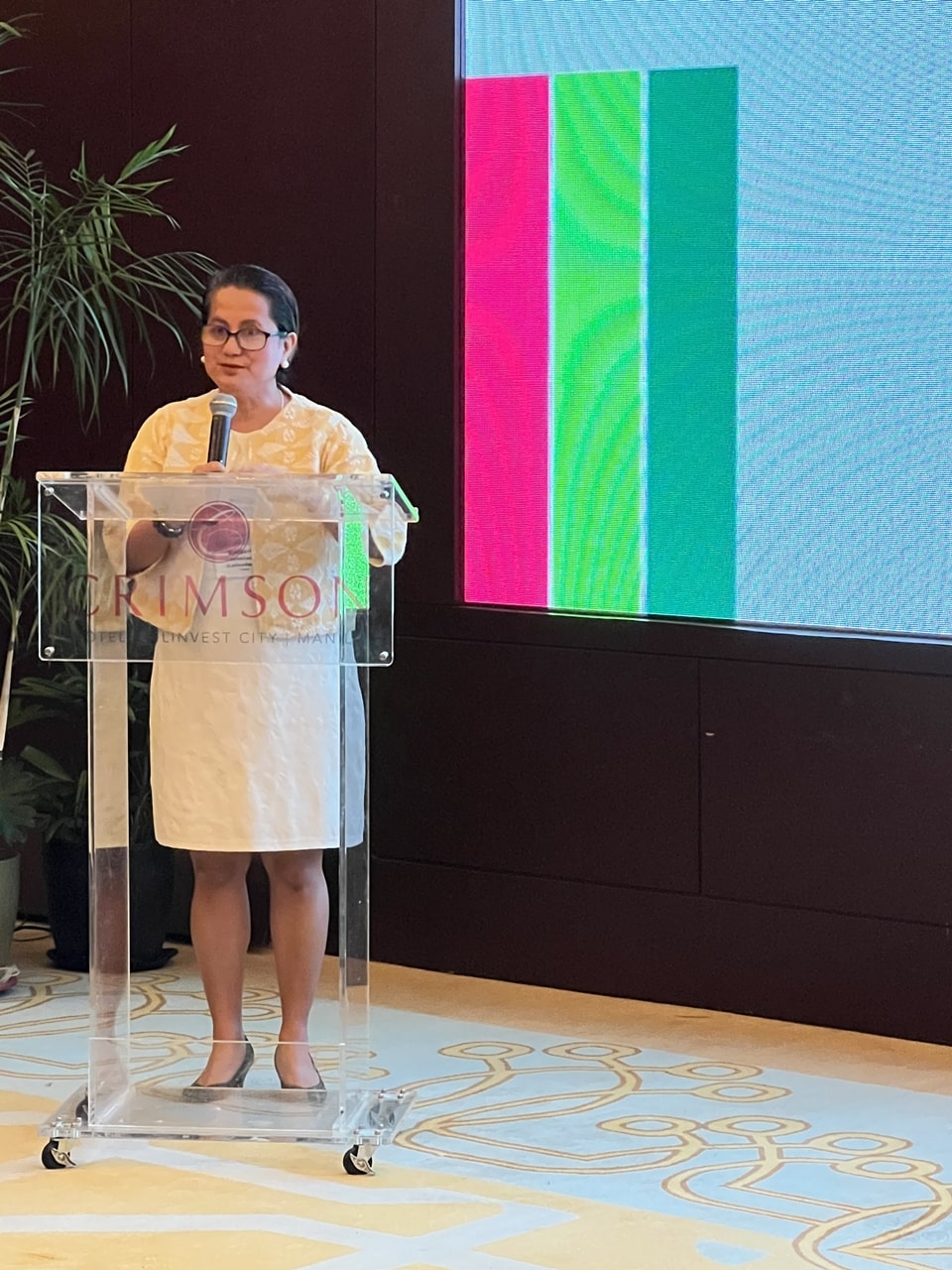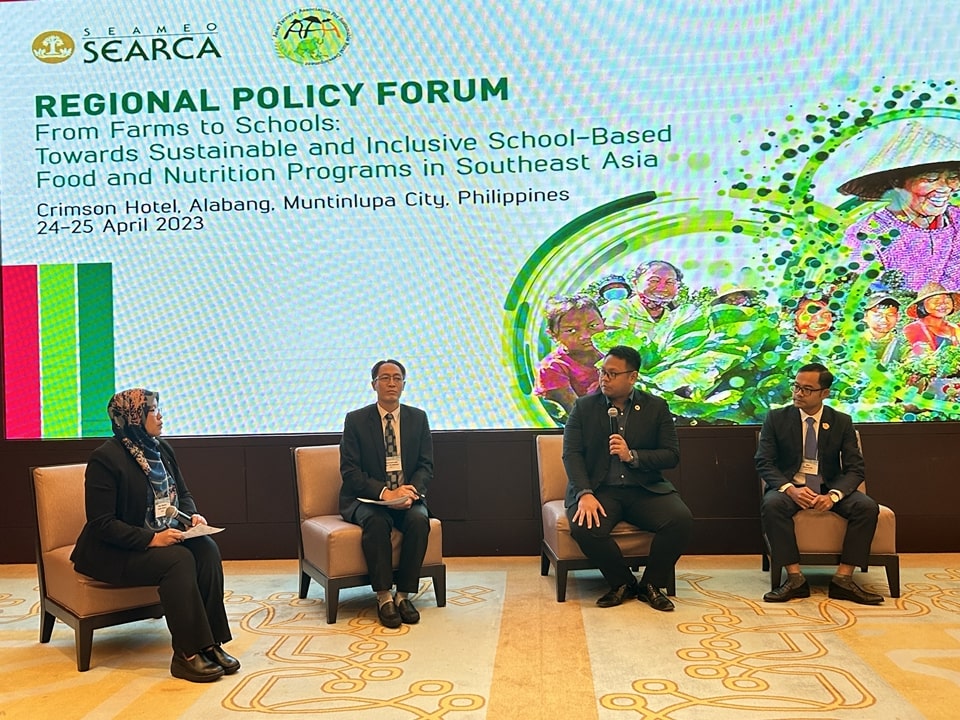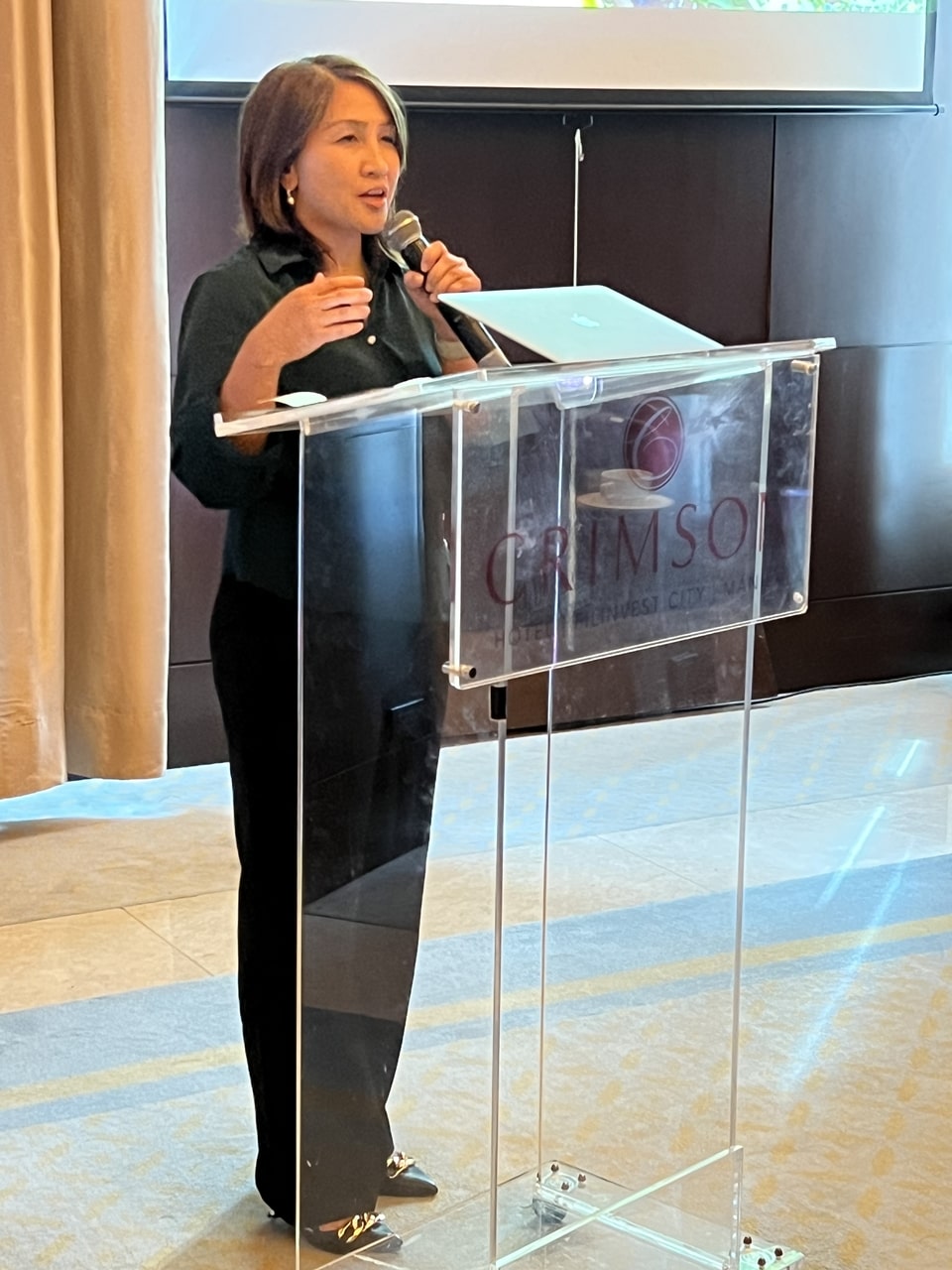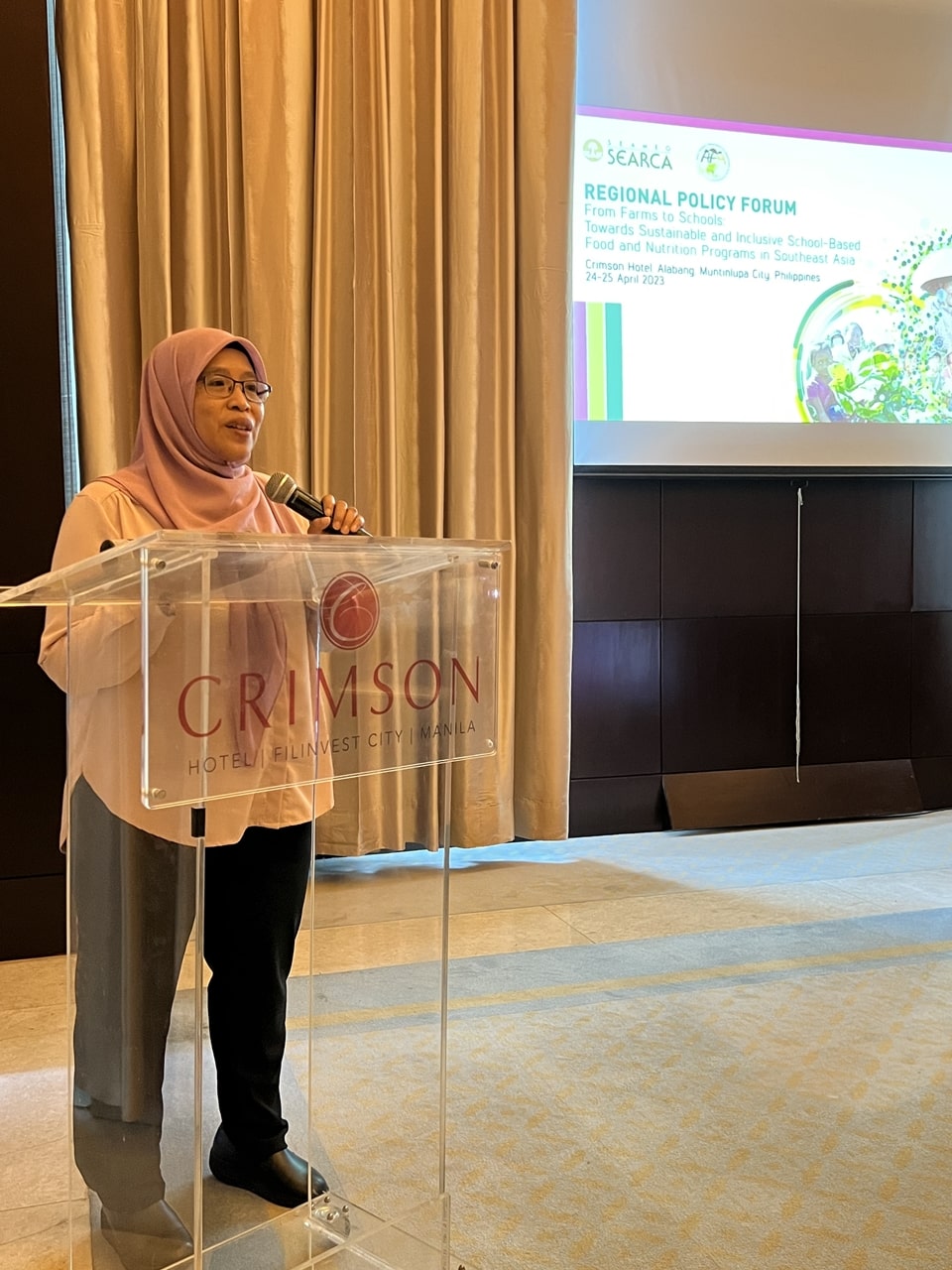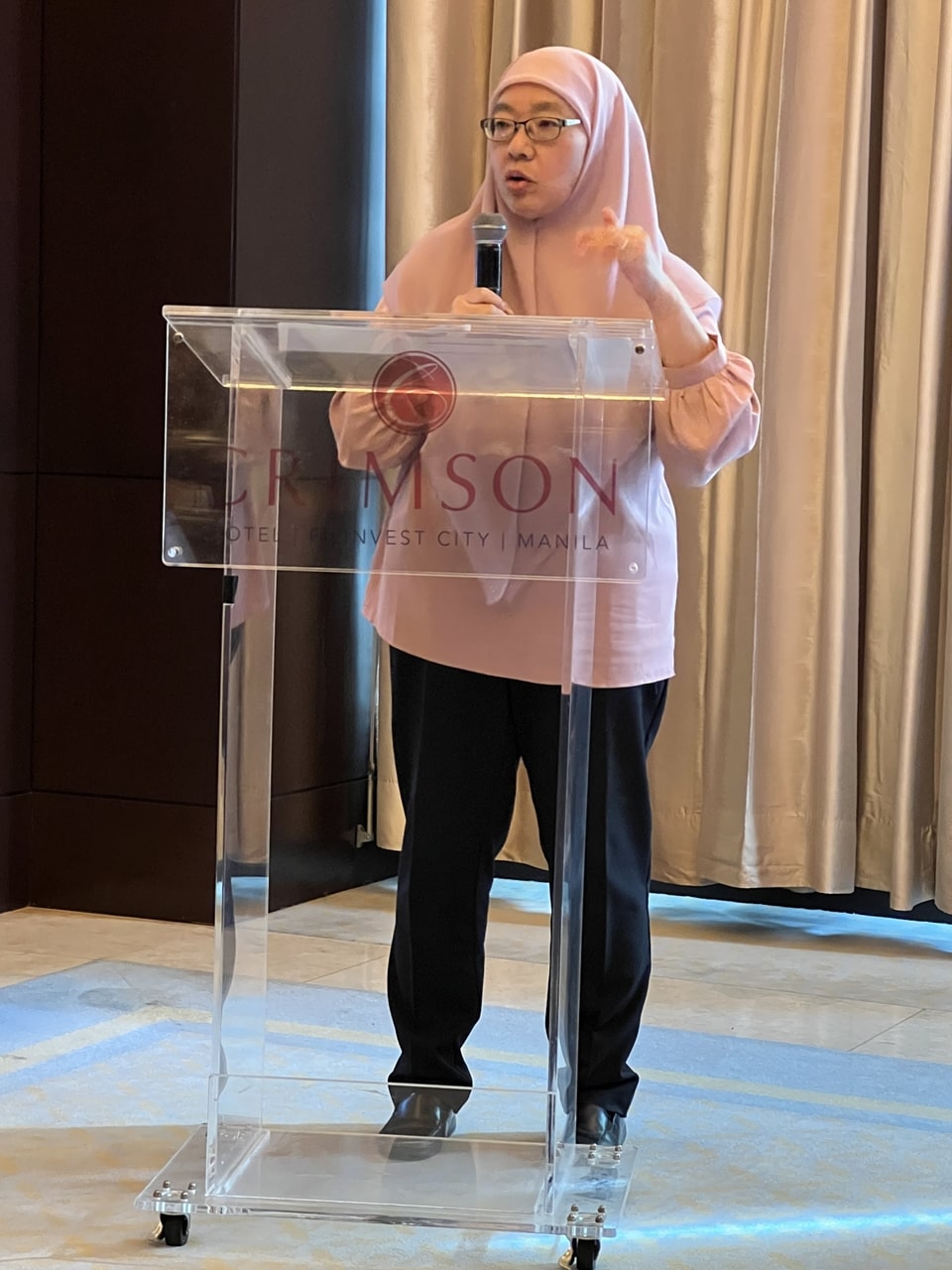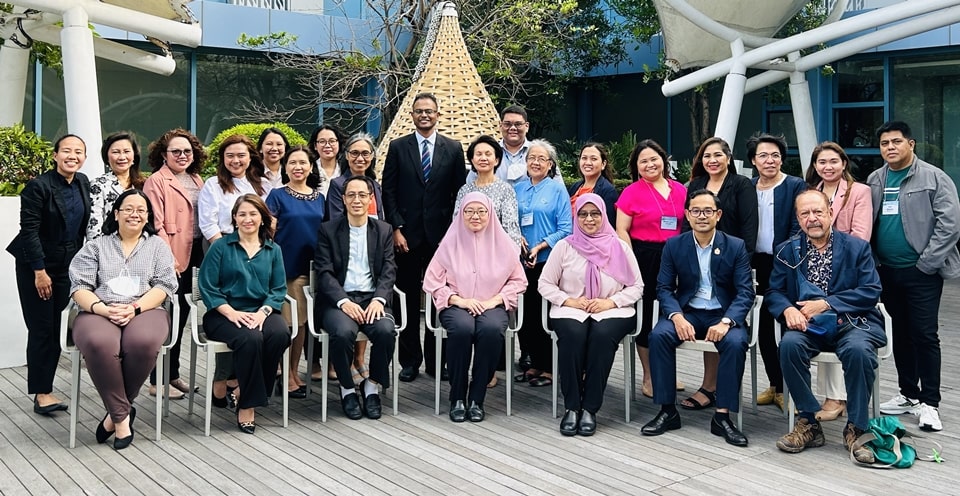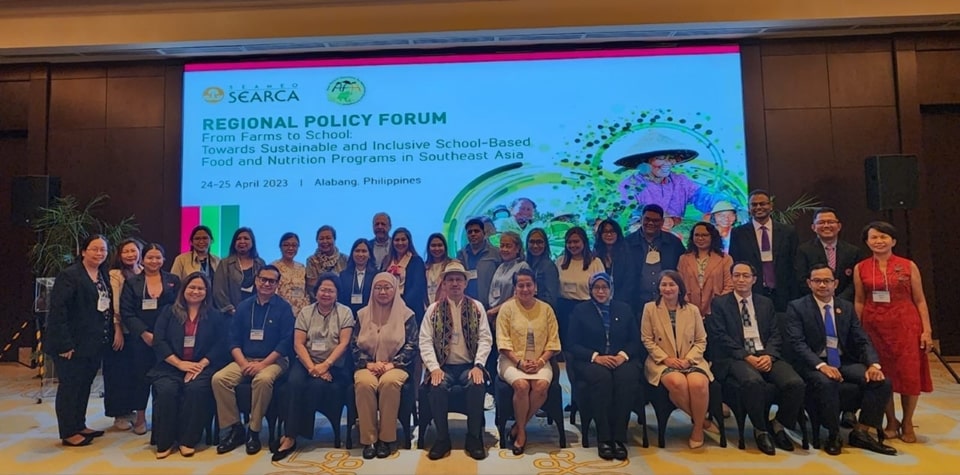
MUNTINLUPA CITY, Philippines—The Southeast Asian Regional Center for Graduate Study and Research in Agriculture (SEARCA), in partnership with the Asian Farmers’ Association for Sustainable Rural Development (AFA), organized a regional policy forum titled From Farms to Schools: Towards Sustainable and Inclusive School-Based Food and Nutrition Programs in Southeast Asia on 24–25 April 2023 in a hybrid format at the Crimson Hotel in Alabang, Muntinlupa City, Philippines and via Zoom. The forum generally aimed to discuss potential policy interventions and courses of action to address the nutrition-education-development nexus by including family farmers in school-based food and nutrition (SBFN) programs in Southeast Asia. Experts from the Association of Southeast Asian Nations (ASEAN), national governments, development organizations, the academe, and farmers’ and civil society organizations were gathered to serve as forum speakers.
The forum was inspired by the School Plus Home Gardens Program (S+HGP), one of SEARCA’s ongoing core projects. Started in 2016, S+HGP initially focused on three key areas: nutrition, education, and economics. Over the years, the program has continuously evolved and has scaled up to cover biodiversity enhancement and entrepreneurship, as well as edible landscaping or community gardening. With the declaration of 2019 to 2028 as the United Nations Decade of Family Farming (UNDFF), SEARCA has seen the need to expand its S+HGP further to support Southeast Asian smallholder farmers by widely promoting farm-to-school activities.
The forum began with Dr. Glenn Gregorio, SEARCA director, warmly welcoming the speakers and participants. He said that SEARCA and AFA have decided to synergize their efforts to organize this regional policy forum to discuss how the region’s existing school-based food and nutrition programs be further enhanced and made more sustainable, inclusive, and innovative by actively engaging family farms, which are considered the backbone of global agriculture. He also emphasized that SEARCA is geared toward elevating the lives of farmers and farming families. He also shared that the Center believed that solidifying farm-to-school programs would be the key to addressing the nutrition-education-development nexus.
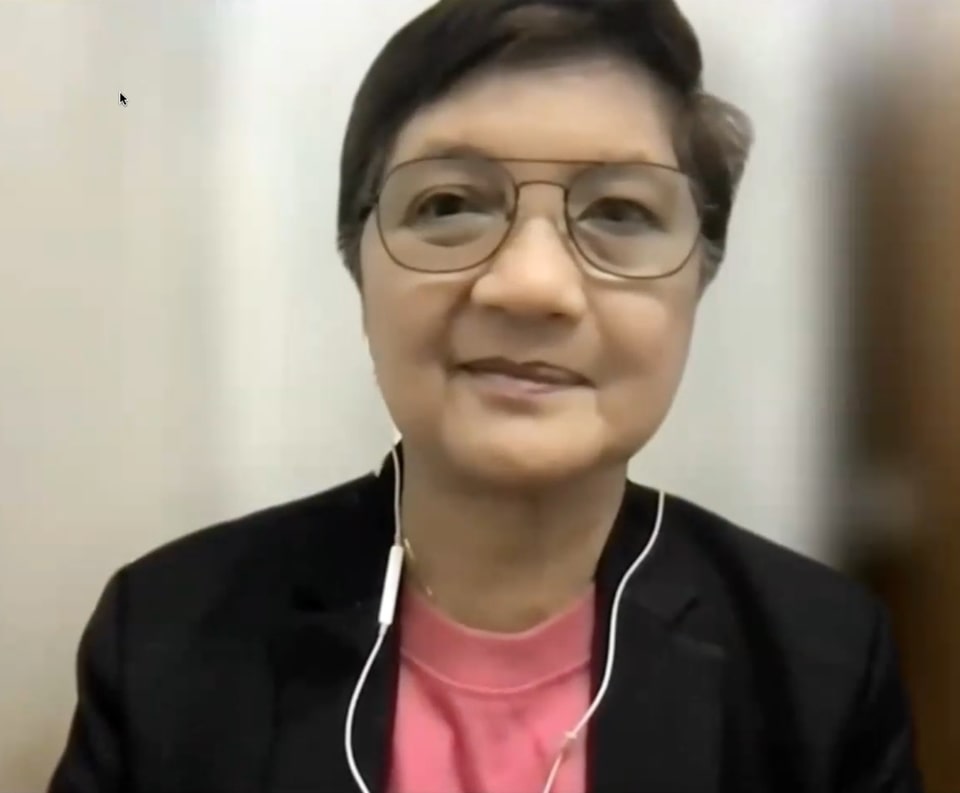
Ms. Ma. Estrella Penunia-Banzuela, secretary general of AFA, sincerely thanked SEARCA for inviting AFA as a forum partner. She said that AFA believed that farmers have a role in addressing society’s food security, health, and nutrition challenges. Ms. Penunia-Banzuela further shared that with the declaration of the UNDFF, the journey to addressing these societal challenges continues. She stressed the need to empower family farmers and both SEARCA and AFA, to produce food while promoting biodiversity and the health of the people as well as sustain farming livelihoods in a healthy, nutritious, inclusive, just, resilient, and sustainable food system. She also said that by doing this, SEARCA and AFA could meaningfully contribute to the attainment of the sustainable development goals (SDG), particularly SDGs 1 (No Poverty) and 2 (Zero Hunger).
During her opening message, Dr. Margarita Consolacion Ballesteros, director of the International Cooperation Office of the Philippine Department of Education (DepEd), said that the farm-to-school program (F2SP) is aligned with the department’s Gulayan sa Paaralan Program[1] (GPP). The Program aims to promote sustainable consumption among school children. She added that both F2SP and GPP programs exhibit the importance of education in solving our countries’ problems. This is by being at the forefront of ensuring the children's and youth's welfare and advocating for research, practices, and solutions that put a premium on sustainability.
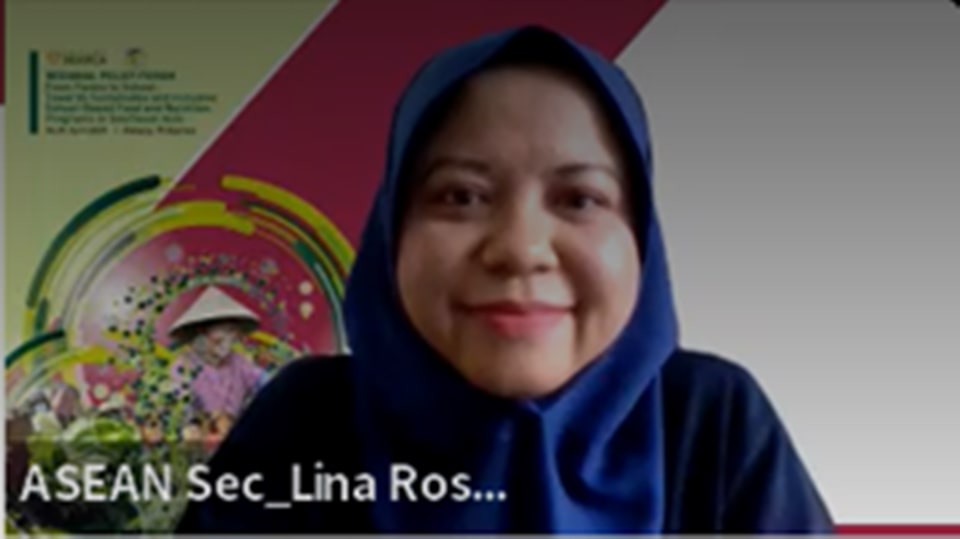
To set the stage for the forum, Ms. Lina Rospita, program coordinator for nutrition of the ASEAN Secretariat, delivered the keynote presentation on the status of food and nutrition security in ASEAN. Ms. Rospita touched on the progress of nutrition policies and programs in the ASEAN Member States (AMS), followed by the ASEAN Strategic Framework and Action Plan for Nutrition (2018–30). Among the many insights on the nutrition initiatives in the ASEAN, Ms. Rospita recommended the following ways forward: scaling-up nutrition service delivery relevant to school nutrition; intensifying efforts to engage with relevant sectors and stakeholders to address the multi-causality of all forms of malnutrition; increasing public, multisectoral investments, and level of cooperation to improve nutrition and ensure healthy diets; and monitoring and evaluation through ASEAN nutrition surveillance system.
The first three sessions of the forum focused on existing SBFN programs in the region. Session 1 provided a glimpse of the current regional programs implemented by the United Nations concerning SBFN programs. Dr. Maria Antonia Tuazon, senior nutrition and food systems specialist of the Regional Office for Asia and the Pacific of the Food and Agriculture Organization of the United Nations (FAO-RAP), tackled their school and home gardens initiatives and presented real-life examples from selected Southeast Asian countries. On the other hand, Mr. Dipayan Bhattacharyya, deputy country director of the UN World Food Programme (WFP) in the Philippines, shared their organization’s role in school feeding in Asia and the Pacific and an overview of WFP’s new School Feeding Strategy for 2020–30.
In Session 2, the speakers presented SBFN programs under the Southeast Asian Ministers of Education Organization (SEAMEO). SEARCA, represented by Dr. Gerlie Tatlonghari, program head of the Research and Thought Leadership, showcased the Center’s work on S+HGP. Since its implementation in 2016, the program has provided an enabling environment and support through other relevant institutions such as the DepEd; the Department of Agriculture (DA); and local, provincial, and regional government units. Dr. Miriam Caryl Carada, assistant professor from the University of the Philippines Los Baños (UPLB), supplemented SEARCA’s presentation with the results of the case study on pathways and mechanisms for collaboration in scaling the S+HGP model. Lastly, Dr. Jesus Fernandez, deputy director for programs of the Regional Center for Food and Nutrition (RECFON), presented their Nutrition Goes to School (NGTS) Program. The NGTS is a school-based multisectoral program that emphasizes the schools’ role as effective media for character-building education centered on good nutritional practices at school and home. It primarily aims to develop active, well-nourished, and intelligent students.
Session 3 revolved around the implementation of national-level SBFN programs, specifically in Cambodia, Lao PDR, the Philippines, and Thailand. Each country representative provided an overview of their major programs and discussed their identified implementation gaps, challenges, and collaboration opportunities. A panel discussion facilitated by SEARCA’s Deputy Director for Programs Dr. Nur Azura binti Adam, then followed. The panel was composed of Mr. Saovorak Nov from the Ministry of Education, Youth, and Sport (MOEYS), Cambodia; Mr. Houmphanh Keo Ounkham from the Ministry of Education and Sports, Lao PDR; Dr. Dexter Galban from DepEd, Philippines; and Dr. Kitti Sranacharoenpong (online) from Mahidol University, Thailand.
Session 4 was dedicated to discussion on farmer inclusion. For the first part, Mr. Pierre Ferrand, agriculture officer for agroecology and focal point for the UNDFF, shared the importance of family farmers and the key challenges that these family farmers encounter. He also provided a synopsis of the UNDFF and its achievements to date. To provide an actual example of a successful F2SP in the region, Ms. Mercedes Castillo, chief operating officer of the Philippine Family Farmers’ Agriculture Fishery Forestry Cooperatives Federation (AgriCOOPh), shared their organization’s involvement in F2SPs, primarily on dairy products. The second part was a panel discussion among selected regional farmers' organizations facilitated by AFA’s Monitoring and Evaluation Officer Ms. Maripaz Bernice Galang. The panel was composed of Mr. Frank Roy Ribo of the Kalipunan ng mga Maliliit na Magniniyog, ng Pilipinas (KAMMPIL), Philippines; Mr. Chhong Sophal from the Farmer and Nature Net (FNN), Cambodia; Ms. Chintanaphone Keovichith from the Lao Farmer Network (LFN), Lao PDR; and Ms. Ma. Elena Rebagay and Ms. Irish Baguilat, both of AFA.
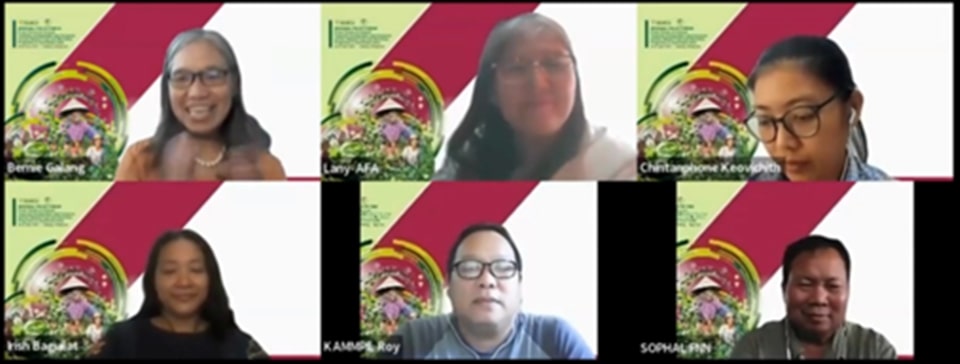
During the breakout session, participants were divided into two groups. Each group brainstormed on the potential courses of action to address the nutrition-education-development nexus through the inclusion of family farmers in school-based food and nutrition programs in the region. The session served as an avenue for discussing the gaps and challenges and how to effectively include family farmers in existing yet-to-be-developed policies and programs such as SBFN. The groups also shared ways to contribute to the policies and programs’ sustainability. Moreover, they discussed exploring opportunities for collaboration among Southeast Asian countries. The outputs of the two groups were then presented in plenary.
As part of the closing program, Dr. Tatlonghari synthesized the two-day forum, highlighting the identified courses of action moving forward. Based on the objectives and expected outputs of this activity, the forum has successfully provided an overview of the current state of food and nutrition security in Southeast Asia as well as specified and analyzed the challenges and opportunities in adopting and strengthening farm-to-school models for school-based food and nutrition programs in the region. Based on the outputs of the participants, the key policy recommendations include: incorporating family farmers in the SBFN policies and programs; creating a favorable policy environment by the government for the SBFN program (mandatory procurement, budget, and partnership mechanism); strengthening and institutionalizing the integrated school nutritional model; intensifying and expanding the coverage of the SBFN and school gardening programs; better matching of schools and organized farmers; and expanding of the financial support for farmers and farmer-cooperatives involved in feeding programs to guarantee timely payment for the farmers.
Dr. Nur Azura binti Adam began her concluding speech by expressing her gratitude to all the speakers, panelists, and participants, both online and on-site, who actively participated in the discussions. Dr. Nur underscored that the forum is aligned with the theme of SEARCA’s 11th Five-Year Plan of Accelerating Transformation Through Agricultural Innovation (ATTAIN). She shared that SEARCA, as an enabler, strived to elevate the life of agricultural families through sustainable and resilient livelihoods. She pointed out that while the outcomes from the forum were considered baby steps, the concerted efforts moving forward by all the participants will eventually result in bigger things.
In closing, the newly appointed SEAMEO Secretariat Director Datuk Dr. Habibah Abdul Rahim highlighted that the forum has provided significant ideas and research results on how the nexus of nutrition, education, and development can be addressed through F2SPs. Dr. Rahim welcomed the undertaking and saw the forum as an opportunity to foster an enabling policy environment that would support the continued implementation of sustainable and inclusive farming programs for our learners, teachers, policymakers, and even ourselves for the changes that will happen in the future.
The forum is under RTLD’s Policy and Program Advisory, which focuses on providing evidence-based information and recommendations for developing policies and regulatory frameworks supporting agricultural and rural development (ARD) in the region. It was attended by around 200 on-site and virtual participants from 10 countries within and outside Southeast Asia.
- ^ It is a program written in Filipino, which means school vegetable garden. GPP is an initiative under the National Greening Program of the Philippine Department of Education.
